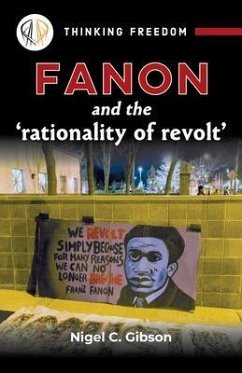
The Ruins; Or, Meditation on the Revolutions of Empires and the Law of Nature (eBook, ePUB)

PAYBACK Punkte
0 °P sammeln!
In "The Ruins; Or, Meditation on the Revolutions of Empires and the Law of Nature," C.-F. Volney presents a profound philosophical treatise that explores the inevitable rise and fall of civilizations, culminating in a poignant meditation on human nature and morality. The book is written in a reflective and eloquent style, employing rich imagery and rhetorical flourishes that invite the reader to contemplate the cyclical patterns of history and the inherent laws governing societies. Volney's reflections are set within the broader context of Enlightenment thought, where reason and empiricism cha...
In "The Ruins; Or, Meditation on the Revolutions of Empires and the Law of Nature," C.-F. Volney presents a profound philosophical treatise that explores the inevitable rise and fall of civilizations, culminating in a poignant meditation on human nature and morality. The book is written in a reflective and eloquent style, employing rich imagery and rhetorical flourishes that invite the reader to contemplate the cyclical patterns of history and the inherent laws governing societies. Volney's reflections are set within the broader context of Enlightenment thought, where reason and empiricism challenge traditional narratives and inspire intellectual curiosity about humanity's fate over time. C.-F. Volney, a French philosopher, historian, and politician, was deeply influenced by the tumultuous political climate of his era, particularly the French Revolution. His experiences as a traveler and observer of various cultures informed his views on the fragility and transience of powerful empires. This background provided the impetus for his existential reflections, as he sought to understand the forces that shape human actions and societal destinies, merging historical scholarship with a philosophical outlook. I highly recommend "The Ruins" to readers intrigued by themes of historical recurrence and philosophical inquiry. Volney's insights resonate across centuries, offering a timeless exploration of the conditions that govern civilization and morality, encouraging a reflective reading experience. It's a crucial text for anyone interested in the interplay between history and philosophical thought.
Dieser Download kann aus rechtlichen Gründen nur mit Rechnungsadresse in A, B, BG, CY, CZ, D, DK, EW, E, FIN, F, GR, H, IRL, I, LT, L, LR, M, NL, PL, P, R, S, SLO, SK ausgeliefert werden.













